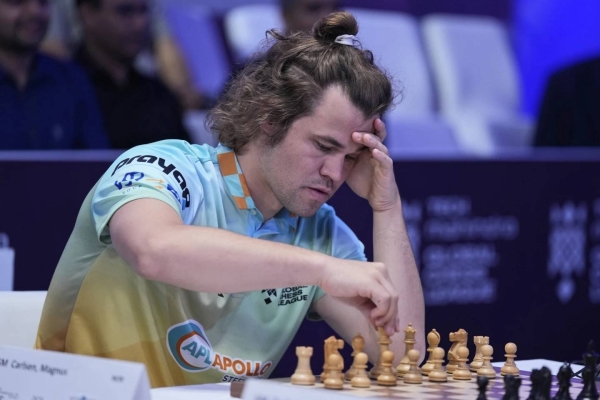The recent news about top-ranked chess grandmaster Magnus Carlsen withdrawing from the World Rapid and Blitz Chess Championships has caused quite a stir in the chess community. The Norwegian champion refused to comply with the International Chess Federation’s (FIDE) dress code, which prohibits participants from wearing jeans during the event. This decision led to a standoff between Carlsen and the federation, ultimately resulting in his disqualification from round nine of the tournament. While Carlsen acknowledged the fine imposed on him, he stood by his decision not to change out of his jeans, citing it as a matter of principle.
FIDE stated that the dress code was put in place to ensure professionalism and fairness among participants. The federation emphasized that these rules have been in place for years and are well-known to all participants. Russian grandmaster Ian Nepomniachtchi was also fined earlier in the tournament for wearing sports shoes but complied by changing into approved attire, allowing him to continue competing. FIDE’s decision to enforce the dress code on Carlsen has sparked a debate within the chess community, with some supporting his stand on principle and others arguing that adherence to established rules is essential for maintaining professionalism in the sport.
Carlsen’s withdrawal from the championship in New York has raised questions about the importance of following rules in competitive chess tournaments. While some believe that rules should be respected and followed to uphold the integrity of the sport, others argue that there should be room for individual expression and personal preferences. The incident involving Carlsen highlights the tension that can arise when personal beliefs clash with established regulations, prompting a larger discussion about the role of rules and regulations in competitive chess.
Despite the controversy surrounding his decision, Carlsen has garnered support from fans and fellow chess players who admire his commitment to his principles. Some have applauded Carlsen for taking a stand against what he perceived as an unjust application of the dress code, while others have criticized him for not complying with the rules of the tournament. The debate has raised questions about the balance between tradition and individual expression in chess, with some arguing that rules should be flexible to accommodate personal preferences while others maintain that rules are rules and should be followed without exception.
The tension between Carlsen and FIDE highlights the complexities of balancing tradition with individual expression in competitive chess. While rules and regulations are necessary to ensure fairness and professionalism in tournaments, they can also stifle creativity and personal freedom. Carlsen’s decision to withdraw from the World Rapid and Blitz Chess Championships has sparked a larger conversation about the role of rules in competitive sports and the importance of upholding principles even in the face of adversity. As the debate continues to unfold, it remains to be seen how the chess community will navigate the tension between tradition and individual expression in the future.










